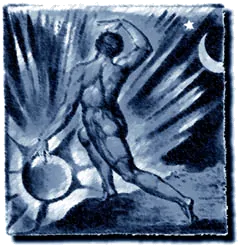Exploring Imagination in Movements, Language, Art and Consciousness
DATES: 10:00 AM Thursday October 28 –
3:00 PM Sunday October 31, 1999
COST: $475.00, includes room and board
PLACE: The Cornerstone
11000 Falstaff Road
Sebastopol CA 95472
The Cornerstone is a ten acre property located in a scenic orchard, 20 minutes from the Pacific coast. The property has walking trails, beautiful open space, and facilities allowing for the exploration of various art forms.
For more information on Cornerstone, contact:
Elizabeth Schreiber
(707) 823-3002
[email protected]
REGISTRATION & INFO: Karen Stefano, Registrar
DuVersity Seminars
8 Homewood Hills
Charles Town, WV 25414
(301) 230-4960
[email protected]

Questions
The poet and prophet William Blake spoke of the Human Imagination as the highest thing. This Imagination is also the mentor of every artist. Blake told us that if a man or woman fail to be an artist, then they cannot be a Christian! Yet, for Gurdjieff and others, imagination seems to be condemned as the principal reason for our slavery. Are there two kinds of imagination? Or, are the two views really talking about one and the same thing?
Approaches
Imagination is like a sharp sword that has to be handled with dexterity. In a simple sense, imagination is the power of creating images. Images are any mental content that are not produced by the immediate external world. We need to know how to work with imagination as intentionally as possible. There is an active imagination that Jung and others favoured, in which the unconscious is brought into manifestation in an ordered way by carefully following what emerges ‘of itself’. Is there a direct contact with knowing that changes what thinking is? Could thinking be then a sixth sense?
Another approach is to put imagination to work in organising the physical world. We can learn how to bring patterns into our actions by intention. We can experiment with this by using sensation in movement. Imagination combined with sensation is a way of bringing the spirit world together with the physical world. The spirit world can become more than a dream; the physical world can become more vivid. We can encounter this through the Gurdjieff movements and may then experience them as ‘sacred dances’.
Interwoven with imagination, there is language. The structures embedded in the language that we acquire at a very early age shape our view of reality. Language itself has to be processed if we are to make a relationship with reality. This can be done together in a group through the dialogue process, which can loosen the bonds of cultural conditioning. As humans, we operate in physical, mental and emotional spaces. It is through imagination that we can explore and move about in these spaces.
The Program
There are four main processes:
SITTINGS: Explorations with thought, feeling and sensation while remaining still…
with Anthony Blake
DIALOGUE: following the flow of meaning in the present moment through group conversation…
with Anthony Blake and Karen Stefano
MOVEMENTS: actualisation of patterns, using the power of Gurdjieff’s sacred dances…
with Elizabeth and Russell Schreiber
ART: emergence of forms through work with the tissue paper collage method of Dr Edith Wallace…
with Karen Stefano
Here are other techniques on which we will draw.
THEORY: A presentation and investigation of mental models, specifically centered on the formation of mental images (from John Bennett, David Bohm and Edward Matchett).
THINKING: This can be done ‘in the moment’ and complements theory.
POETRY: Listening to poetry readings in such a way that one picks up on the ‘second world’ (world of ‘spirits’ or energies) closely associated with images (as developed by Anthony Blake).
DREAMS: The technique of ‘social dreaming’ (derived from the work of Gordon Lawrence).
The Presenters
Anthony Blake, author and facilitator, studied under J. G. Bennett, David Bohm and a variety of teachers to gain understanding of ‘total process’.
Karen Stefano is an artist and practising psychotherapist. She has worked with Jungian analyst Dr. Edith Wallace on the collage method.
Elizabeth and Russell Schreiber are our hosts in their center in Sebastopol and have had many years of experience in working with Gurdjieff’s ideas and movements.
